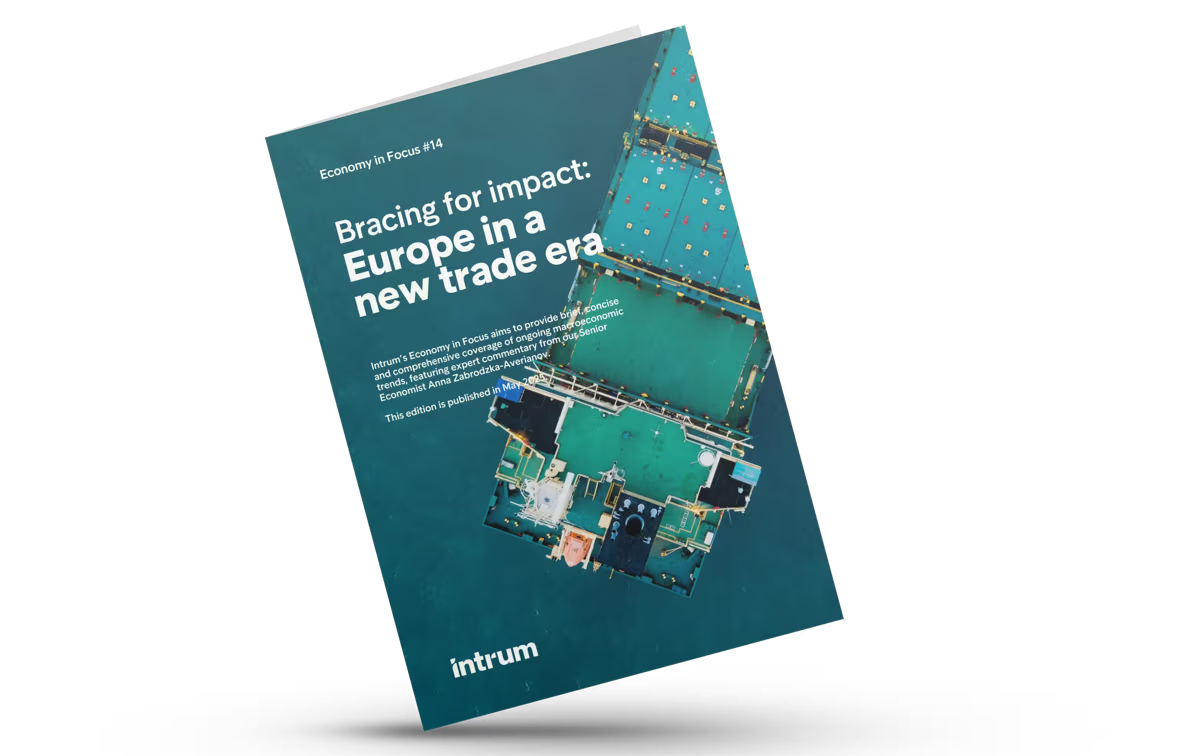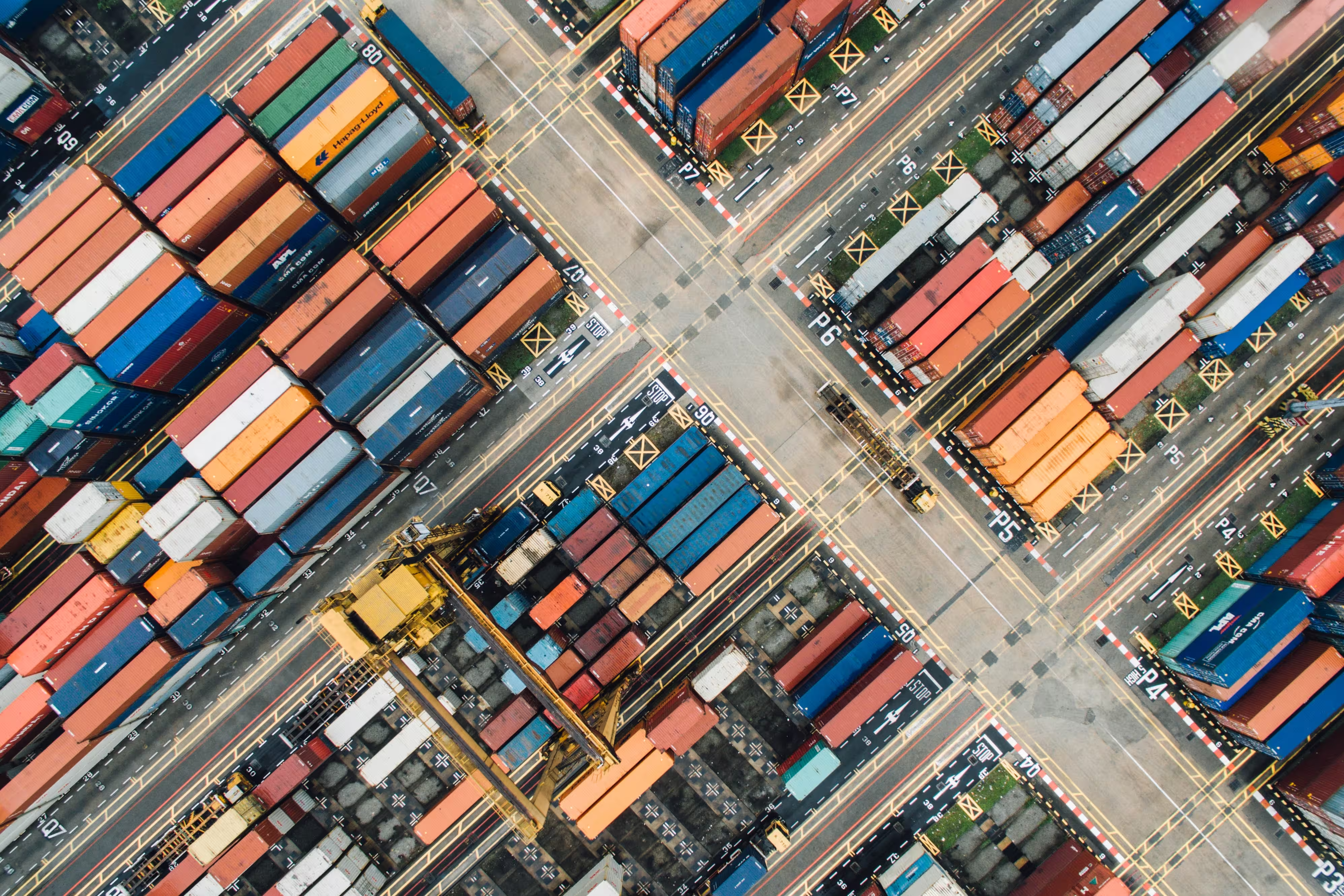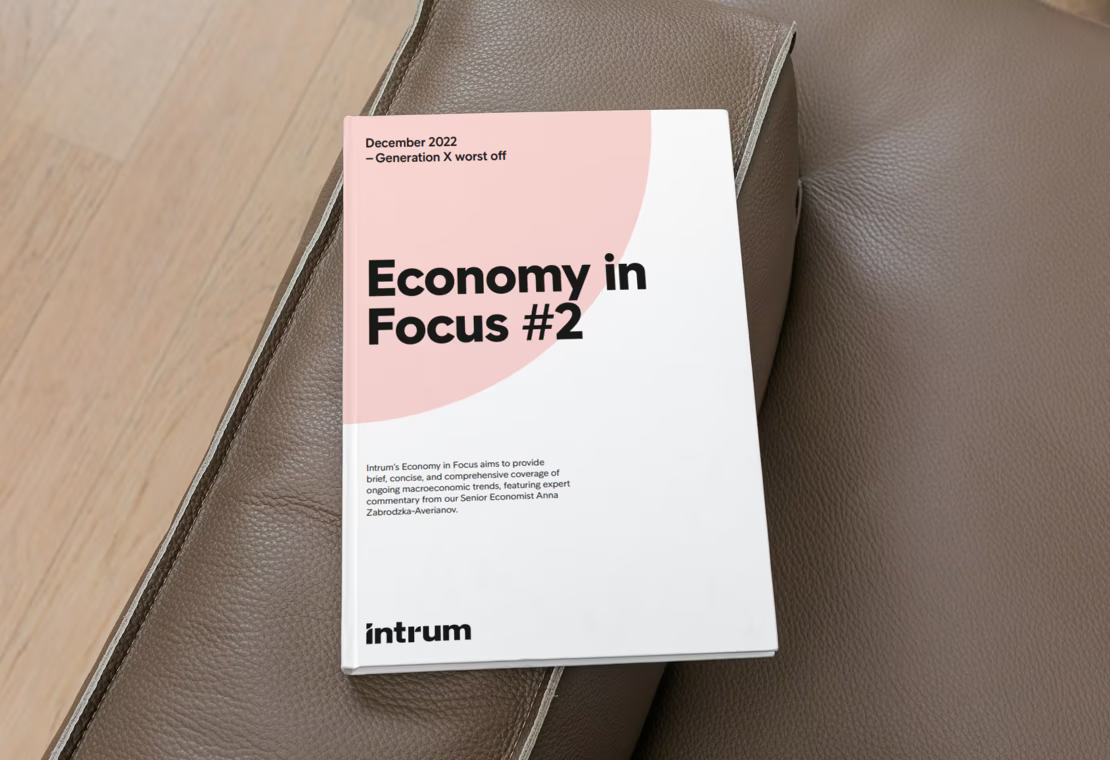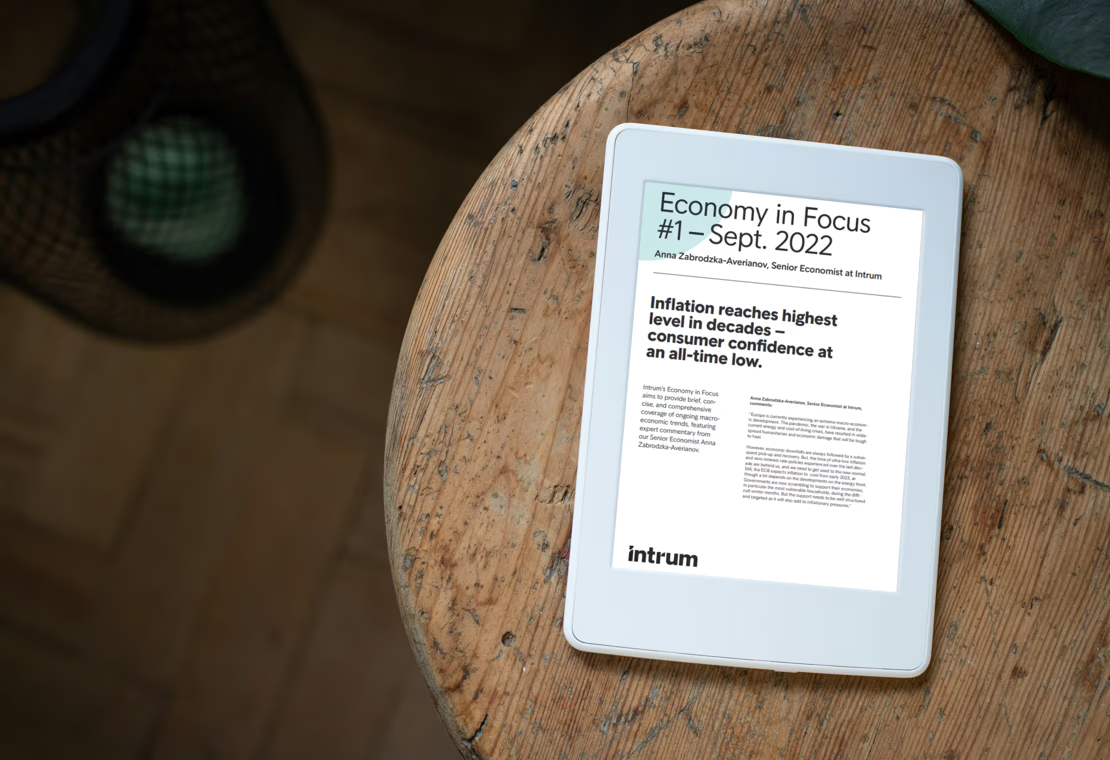
Economy in Focus #14 - Bracing for impact: Europe in a new trade era
From policy unpredictability to market volatility, what lies ahead for Europe? Expert commentary from Senior Economist Anna Zabrodzka-Averianov outlines two potential scenarios for Europe’s economic trajectory. The 14th edition was published May 2025.
The impact of US tariffs on Europe
The return of US protectionism is reshaping global trade. New tariffs are disrupting supply chains, fuelling uncertainty, and putting pressure on Europe’s export-driven economies.
Who is most exposed – and why
Germany, Italy, the UK and Ireland are directly affected, while countries like Czechia and Hungary face indirect risks. Automotive, pharma and manufacturing sectors are particularly vulnerable.
Two paths forward - what does it mean for late payments?
The white paper outlines two scenarios: a gradual de-escalation with manageable disruption, or a full-scale trade war triggering recession, job losses, and rising defaults.

Comment from Intrum's Senior Economist:
"Geopolitical and policy uncertainty is slowing euro area recovery. While gradual de-escalation remains the baseline, damage is done—and businesses must brace for ongoing challenges. A severe trade war and global recession, though less likely, cannot be ruled out."

Rising trade tensions and geopolitical risk
Aggressive trade policies by US administration have reignited global uncertainty. Tariffs targeting China and other key trade partners are reshaping the international economic landscape and fuelling market volatility. Some economies and industries are more vulnerable than others. Export-heavy countries and sectors like automotive, pharma, and machinery face the greatest risks, while Central and Eastern Europe could suffer knock-on effects through supply chains.

Persistent late payments and financial strain
Despite positive revenue trends in 2024, the latest European Payment Report 2025 note that businesses continue to face delayed payments and cash flow challenges. High interest rates, elevated risk, and economic uncertainty are making collections more difficult and amplifying pressure on SMEs in particular. As potential trade wars are disrupting supply chains, fuelling uncertainty, this putts pressure on Europe’s export-driven economies.
How to meet a volatile global trade landscape?
Download the Economy in Focus #14Previous editions of Economy in Focus:
Insight hub | Most read insight articles
Explore payment trends and economic insightsloading...












